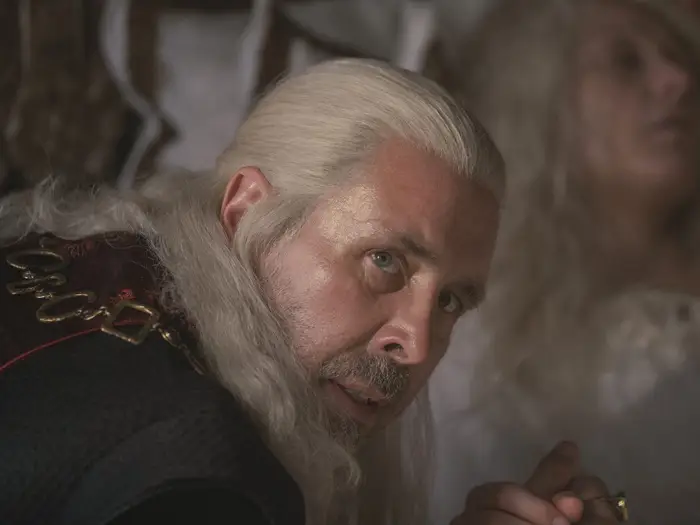The birthing scene from House of the Dragon premiere had people discussing. the showrunners explain why it was included, and scholars say it was inaccurate to the era.
SPOILERS for House of the Dragon Episode 1 ahead
In House of the Dragon Episode 1 Queen Aemma underwent an involuntary c-section when her baby was breached. This was made at the decision of her husband, King Viserys, without her knowledge.
Many fans online reported the scene as being triggering for them and wished a warning would have been put in place.
Some viewers took to Reddit to voice their frustrations:
“That scene just triggered me … I’m 3 months [postpartum] and I was crying my eyes out. It was too much.” These women reported that some of their male partners laughed at their squeamishness, while others understood.
“I don’t understand why TV shows don’t have to have a warning for birth trauma triggers,” another person added. “Birth trauma is actually pretty widespread even if people don’t talk about it and the impact from seeing a birth scene when you have experienced birth trauma is huge.”
Love Film & TV?
Get your daily dose of everything happening in music, film and TV in Australia and abroad.
The showrunners, however, thought it was necessary to include the scene to show the brutal treatment of women during the time period.
Episode director and co-showrunner Miguel Sapochnik told The Hollywood Reporter, “We felt that was an interesting way to explore the fact that for a woman in medieval times, giving birth was violence. It’s as dangerous as it gets. You have a 50/50 chance of making it. Many women didn’t. If given the choice, the father would choose the child over the mother as a cesarean would kill you. It was an extremely violent part of life.”
Slate asked Sara McDougall, a scholar of medieval history who writes about gender, about the validity of the entire scene. McDougall’s response conflicted with Sapochnik’s:
“The idea that they would do it and do it in this way is a gross imposition of medievalism—the idea that medieval patriarchy must be the same or worse than ours, therefore since we don’t care about mothers and only love fetuses, so too they,” wrote McDougall in an email. “Totally no. They were very keen on protecting mothers from harm.”


































